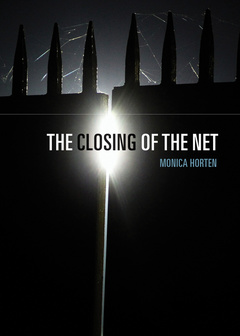Description
The Closing of the Net
Author: Horten Monica
Language: English
Subject for The Closing of the Net:
Keywords
Publication date: 05-2016
200 p. · 15.5x21.8 cm · Hardback
Publication date: 04-2016
200 p. · 14.7x21.1 cm · Paperback
Description
/li>Contents
/li>Readership
/li>Biography
/li>
This inspirational book provides the backstory to current attempts by states and corporations to control the Internet. It explains key issues such as privacy, net neutrality and copyright in a way that is accessible to non-experts, as well as providing a clear, authoritative context for academic study.
The Closing of the Net explains:
- Why apps are never 'free', and how data profiling got into politics
- How the entertainment industries went head-to-head with Internet companies over online copyright
- Why we got the GDPR (General Data Protection Regulation) and why Europe has stronger privacy laws than the US
- How post-Snowden surveillance politics is embedded in data retention law
- Why net neutrality matters
- How cloud service Megaupload was brought down
Monica Horten's compelling account of these issues concludes with an outline of the risks we face in the future if monitoring and blocking of the Internet becomes the norm. And the results are chilling. This book is a must-read for all followers of cyber-policy, and is suitable for courses addressing digital media and society, communications policy, Internet and copyright law.
Acknowledgements
Acronyms and Abbreviations
1 Power and the Internet
2 Private Lives, Public Policy
3 The PRISM Agenda
4 Surveillance Liabilities
5 Not Neutrality Under Pressure
6 Filtering Policy
7 The Cooperation Agenda
8 Blocking Judgements
9 A Dark Cloud
10 Closing Pressures
Notes
References
Index
Monica Horten (PhD, University of Westminster; DipM, Chartered Institute of Marketing) is a Visiting Fellow at the London School of Economics, and a Council of Europe expert, where she served for two years on the Committee of Experts on Internet Freedom. She has participated in drafting of standards-setting instruments, and in capacity-building projects for Internet and human rights in the post-Soviet states. She has presented her academic research in the European Parliament. Her blog, Iptegrity.com, has been influential in informing EU policy-making, notably the 2009 EU Telecoms Package. She was the only female writer in the Journal of Cyber Policy’s 2016 Top 10 Must-Reads.

